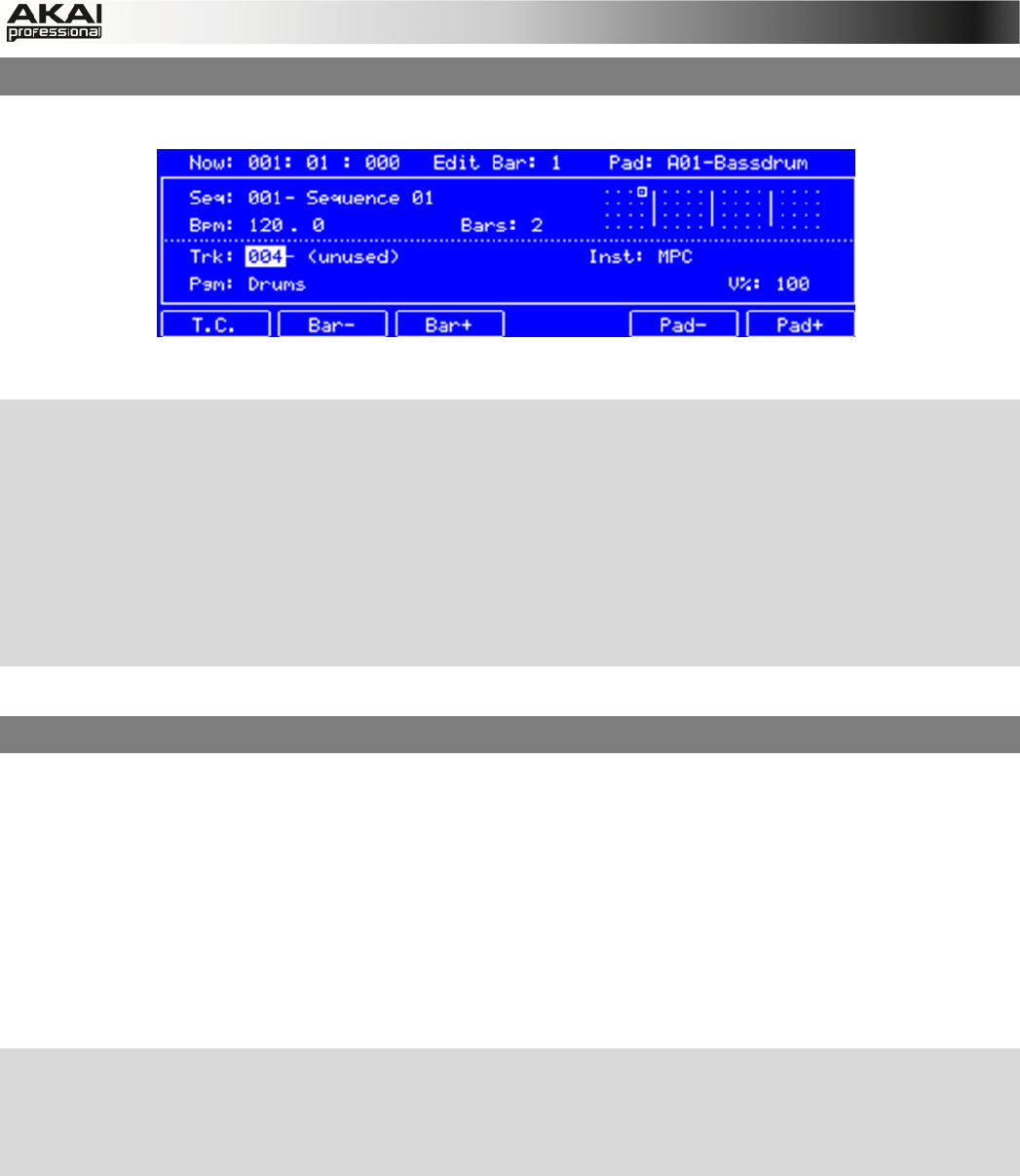
27
4.10 STEP-BY-STEP WITH STEP RECORDING
You’ve already learned how to record note events on a track. But there’s an easier way to do it.
The Step Seq mode display of the MPC hardware
X It makes sense to use a new track, so use the cursor buttons to navigate to the Trk parameter
to select an unused track. Let’s say Track 04. Navigate to the Bars parameter (the number of
bars for the sequence) and set it to Bars: 1.
X Press the STEP SEQ button on your MPC hardware to enter the Step Seq mode.
X Press the PLAY button to start your sequence.
X Hit one of the 16 pads to insert a note event in the new track. You can instantly hear and see
new events. The green cursor is indicating the current time and the pads represent steps of
the timing correct. For example, hit pads 1, 5, 9 and 13 to create a four-on-the-floor kick.
Pretty easy, right?
4.11 AUTOMATION
Now, let's add some spice to our sequence. First, we'll add an effect to our new recorded sample,
e.g., a reverb.
In the MPC software, click on the Main tab to open Main Mode. Locate the pad that shows the
name "Vocal", indicating that our sample has been assigned to it.
In the Q-Link section, click on the PRG button. Turn Q-Link knob Q1 to activate it for assignment.
Now click on the PAD field to select the pad that "Vocal" is assigned to. In the PARAM field,
select Filter Cutoff as parameter. In the CHANGE field, select Real Time as the parameter. Do the
same steps for Q-Link knob 2: assign it to the "Vocal" pad, and select Real Time as the CHANGE
parameter, but select Filter Reso (resonance) for PARAM.
X Press the OVER DUB button on your MPC hardware to arm your automation recording. Press
PLAY to start it.
X Use Q-Link knobs Q1 and Q2 to record filter movement as desired. After that, press STOP to
finish the automation recording.
Want to see what you’ve recorded?
In the MPC software, to the left of the velocity lane under the Grid, click the Automation menu,
select Real Time, and select RT Filter cutoff and RT Filter resonance. The parameters will appear
below it. Click either one to show its automation data. By clicking on an automation anchor point,
you can edit the automation.


















